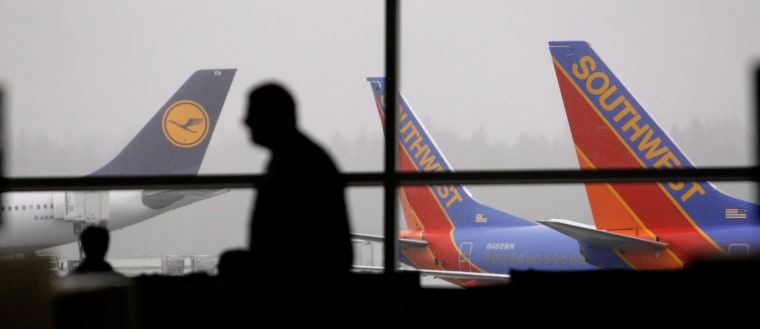The Seattle suburb of SeaTac is home to 27,000 people and the nation’s 16th-busiest airport — and among the highest rates of poor children and families in the state. If voters approve next month, it could also be a test lab for a novel way to tackle low wages paid to workers such as parking lot attendants, hotel clerks and airport baggage handlers.
Beginning this week when ballots are mailed out, SeaTac residents have until Nov. 5 to vote on Proposition 1, an initiative that sets a $15-per-hour floor on wages and mandates paid sick leave. Regardless of the outcome, this campaign will be watched closely by labor advocates pushing for higher wages across the service sector.
“You can only go so low, and the middle class is fighting back,” said Renee Asher, spokeswoman for the Service Employees International Union, one of the unions backing the ballot measure.
In practice, Proposition 1 would look similar to regulations imposed on some other airports — airport workers in Los Angeles, for instance, earn a minimum of $15.67 an hour under a living wage ordinance — but there are some key distinctions.
“Having a municipality that essentially is the airport makes it different,” said Ken Jacobs, chair of the University of California Berkeley’s Center for Labor Research and Education.
Although the law targets just 6,300 jobs in the airport and hotel industries, SeaTac’s concentrated economy revolves around Seattle-Tacoma International Airport, so passage of the proposition would deliver outsized benefits to the local economy, Jacobs said. “From a municipal finance perspective, they stand to gain more.”
What’s more, having an entire community coalesce around a $15 hourly wage, a number that has been at the forefront of protests over worker pay in the fast food industry, would give more credibility to the movement.
“Given the rallying cry around $15 an hour, I think that is symbolically significant,” Jacobs said. Currently, the highest minimum wage in the country is in San Francisco, where it is $10.55 an hour.
Washington has the highest state minimum wage, at $9.19 an hour (California has committed to $10 an hour by 2016), but Mike McGinn, mayor of nearby Seattle, said cities ultimately would take the lead in turning the minimum wage into a living wage.
“I’ll support whatever increase the city council passes. If it’s more than $15, I’d support that,” said McGinn, who is running for re-election next month.
“This issue is really resonating with the public,” he said. “A lot of people see the rising inequality.”
Heather Weiner, spokeswoman for Yes! For SeaTac, agreed. “There’s a rising public support for paying people a living wage.” Yes! For SeaTac collected more than 2,500 signatures to get the measure on the ballot.
Not everyone agrees, though. “There are a lot of local people who reside in SeaTac who think the initiative is not well thought-out,” said Gary Smith, spokesman for opposing political committee Common Sense SeaTac.
Smith said requiring some companies to give workers “a 60 percent increase in pay plus, essentially, a week’s vacation” would force mom-and-pop business owners to raise wages to remain competitive. “You can’t really make these artificial distinctions,” he said.
